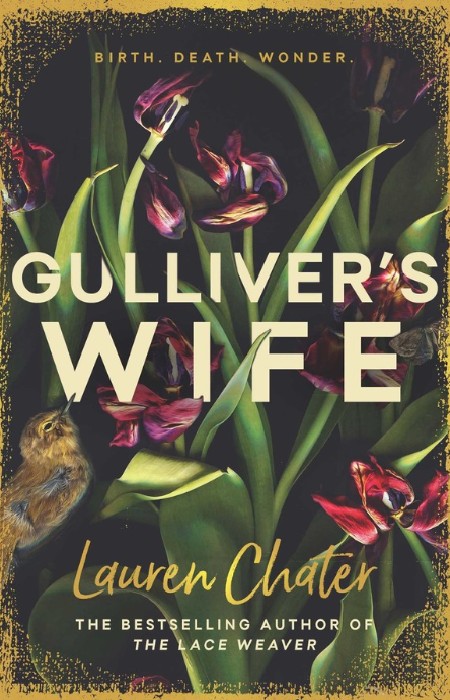
In our modern age, we have become accustomed to the idea that equality and justice are, if not always in palpable evidence, then at least attainable in some form, however incomplete.
No one would argue (apart from some deluded misogynistic men on Twitter of which there are sadly far too many), for instance, that women have achieved equality, freedom from sexual equality or physical harm.
The reality for modern women is still far too grim to stand as any real kind of victory but as #MeToo has demonstrated, as has the existence of the welfare state and hefty industrial laws that seek equality even if it still lags as an evident reality, that many people believe that parity between men and women is not only desirable but possible and achievable.
Not so, 300 years ago in 1702 London where Mary Gulliver, a midwife struggling to make ends meet while her lauded husband, surgeon and tall tales-telling seafarer Lemuel, is either being held captive, so he says by Lilliputians or losing himself to opium back in the British capital, faces a fight simply to survive, any kind of justice or equality a far-off pipe dream.
In the hands of masterful storyteller Lauren Chater, whose second book Gulliver’s Wife has just been released, Mary’s story is a powerfully grounded one, redolent and gritty in a way that her husband’s oft-repeated and outlandish tales are not.
While Lemuel, a man narcissistically weak of character and prone to imbibing far too many alcoholic drinks and drugs and sending his family into penury to get them, is held up as some swashbuckling hero adventurer, Mary’s actions which involve regularly saving lives, tending to the psychological and emotional needs of women giving birth (and simply being alive in the early eighteenth century which is no easy feat) and raising her son Johnny and daughter Bess as a single mother in effect is not.
“A lump lodged in her gullet at this proof of Lemuel’s deception—the first of many. As she stood there trembling, a boy from the clockmaker’s at Clerkenwell arrived bearing Lemuel’s wedding gift – a jewel-toned timepiece. Years later when it was sold, its absence on the mantel brought stark relief. She had come to associate it, in her mind, with that day of revelation and the dreadful moment of realising exactly what she had lost.” (P. 25)
The story of Lemuel, made famous in Jonathan’s Swift’s classic parody known as Gulliver’s Travels (it’s short unofficial title) – its exhaustingly long official title is Travels into Several Remote Nations of the World. In Four Parts. By Lemuel Gulliver, First a Surgeon, and then a Captain of Several Ships – and that of Mary stand in stark contrast to one another.
In so doing, Mary’s story in particular, which is naturally the focus of Gulliver’s Wife, graphically illuminates the inherent, brutal and unforgiving inequalities of life in a London most clearly socially landscaped to favour men.
While Lemuel can come and go and do as he pleases with domestic and legal impunity, Mary is effectively, like all women of the time, his property, someone, or in the views of most men and the law of the land, something to be bought and sold on a whim, a possession tasked with breeding and rearing progeny, providing food and a good household and submissive and subservient to her man, her own needs and desires of little to no relevance.
Mary, a smart, intelligent and vividly-realised character in Chater’s assured hands – in her notes at the end of the book, she remarks on the fact that Mary was a footnote of sorts in Gulliver’s Travels, something she seeks to rectify in her brilliantly well-told book – is all too aware of her precarious position, understanding that a poorly-expressed opinion here or ill-thought out action there is all that stands between her current life of relative comfort (very relative, in fact) and death-inducing poverty and ruin.
That is why when Lemuel is declared lost at sea, Mary sets out carving herself a self-sustaining life as a well-regarded midwife (by women and some enlightened men such as Lemuel’s cousin Richard with whom she has a close relationship) that is placed in jeopardy by her husband’s unexpected appearance three years after his disappearance.

Reappearing rife with fever and tales so outlandish that they seem impossible to believe, Lemuel sends a seismic charge through Mary’s delicately-balanced life which is far from luxurious but succeeds in keeping a roof over the head of her, her daughter Bess and their maid (and member of the family) Alice and ensuring she has that rare thing for a woman of her time – a degree of self-determination and independence.
So self-involved is Lemuel, and so reckless in whom he calls friend – his sailor companion Piet is a man even more malodorous a human being than Mary’s husband, posing a visceral threat to Mary, her family and her community – that he doesn’t even notice the destruction he is causing, with Mary left to pick up the pieces, racing to prevent further breakages and loss to lives innumerable, even as she seeks to bring some small measure of justice to the blighted women of poverty-stricken London.
Gulliver’s Wife is, subject matter-wise a tough read at times, but it is so luminously, beautifully written, replete with such empathy, care and understanding for its richly-imagined characters, that it is possible not to fall in love with this sparkling weight of a novel or to fly through it with eagerness and anticipation.
It bravely tackles the rampant social injustices of the day, placing Mary fully front and centre of a world where women have little to no perceived worth beyond maid and baby factory and where even the law and the church are predisposed to see them as the problem, and not the men who routinely and with deliberate malice, oppress them.
“‘Your courage still surprises me,’ he says before looking away, embarrassed.
Does it? she thinks. Perhaps once, it might have surprised her too, but she knows herself better now. She has discovered that she is a woman who knows that winds can change. That things hat are lost can be found. That children grow and find their feet. They make their ow paths. They set off on glorious adventures, travelling to places we cannot even imagine.
And then, with luck, they come back.” (P. 387)
Returning to the theme of justice that began this review, you have to wonder if any woman can find meaning, security and equality in a society so weighted not in their favour.
There is no magical fairytale ending to Mary’s tale but as Gulliver’s Wife tells its engrossing story and we are drawn comprehensively and imaginatively into the warts and alls horrors and small joys of early eighteenth-century London in all its grimy, muddy, cumulative disparity, we bear witness to a remarkable, enthralling woman who fights for every last scrap of equality, justice and life she can hold in her fiercely determined hands.
She is often beleaguered and despairing and Chater takes great care to keep her grounded and real even as she evokes the true honour and glory of a woman who won’t take her fate lying down, if at all, an approach that richly imbues Gulliver’s Wife with a tentative hope, a sense of life with meaning and purpose and a real, profound sense that even in the most blighted of lives, there is some small beauty to be found (though it must be fought for with unceasing tenacity).
Gulliver’s Wife is a captivatingly rich and superbly-detailed joy, not because it tells an overwhelmingly inspiring story, though it is enrichingly uplifting in ways you may not expect when you are neck deep in its grim reality, but because it is brutally honest about the stark truths of Mary’s life, and that of many of her contemporaries, and yet finds a way to remind us that it is still possible to have a life of meaning and hope even when everything, and we mean everything, is arrayed against any such outcome taking place.